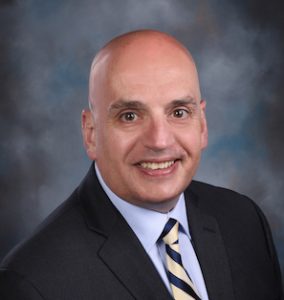Amid a global pandemic, out-of-network billing and cuts to fee schedules were probably the last things on the minds of most working emergency physicians. We’ve got enough of a crisis on our hands every time we go to work. But ACEP never lost focus on these issues, as any legislation related to these issues always carries the potential to pose existential threats to our specialty as we know it.
Explore This Issue
ACEP Now: Vol 40 – No 01 – January 2021While most of us have been focusing our attention on battling COVID-19 on the front lines, ACEP was deeply engaged in successfully brokering a series of compromises on Capitol Hill in December. The news is excellent.
On Dec. 21, the U.S. House of Representatives and Senate approved a comprehensive end-of-year spending package, and President Donald Trump signed it into law on Dec. 27. The 5,593-page bill includes funding of the federal government for the fiscal year through September 2021, additional COVID-19 relief, and continued funding of health care “extender” programs. Most important for emergency medicine as a profession, the package also has key provisions to address the out-of-network balance billing (OON/BB) issue and delivers significant relief to the previously proposed 2021 Medicare Physician Fee Schedule cuts, which would have been extremely painful ones.
The federal surprise billing law applies nationally to ERISA plans (employer self-funded plans under the Employee and Retirement Income Security Act of 1974) and to all state-regulated (fully insured) plans in states that do not have a state-based law. Although the bill applies to patients who receive care from an out-of-network physician or facility, more importantly, it affects the negotiation leverage between insurers and physicians for in-network contracting and care.
Overall, this legislation will achieve two major goals:
- Protecting patients from unexpected medical bills when they seek emergency care
- Incentivizing insurers to keep physicians and other health care workers in-network and pay reasonably when unexpected out-of-network care occurs
Here are highlights of the OON/BB legislation, which goes into effect on Jan. 1, 2022:
- Creates a framework of initial payment with an opportunity for a simplified arbitration (called independent dispute resolution, or IDR) if insurers don’t make a fair initial payment
- Establishes strong criteria for the IDR arbitrator to consider when determining which side’s offer is “most reasonable,” including the history of contracting between the health care–providing entity and the plan that occurred during the previous four years
- Declares that there be no threshold dollar requirement to use IDR and allows for batching of multiple claims that relate to care provided by the same clinician, for the same service, and in the same geographical area over a 30-day period
- Prevents plans from reducing the “median in-network” rate considered by the arbitrator by fixing it to a point in time, plus adds an inflation adjustment yearly
- Sets “baseball-style” arbitration, where the arbitrator must pick the most reasonable offer and the loser pay all IDR fees
- Requires plans to make all payments directly to the health care–providing entity (insurers must pay the clinician or entity that provided the care directly, rather than provide the payments to patients who would then have to turn around and make payments to hospitals, physicians, or other care-providing entities)
- Prohibits the arbitrator from considering Medicare and Medicaid rates when determining a fair payment for commercial claims
The next important step in the process will be working with federal agencies to do rulemaking to operationalize the law in time for its implementation on Jan. 1, 2022.
Pages: 1 2 | Single Page






2 Responses to “ACEP Delivers on Out-of-Network Billing”
January 10, 2021
James BerryGreat work ACEP! This is definitely a step in the right direction.
February 14, 2021
Tom SugarmanOur advocacy team, in partnership, with other physician organizations, achieved a solution that protects patients from balance billing but also requires insurance companies to pay fairly, thus preserving access to the emergency safety net. Kudos to the entire Washington DC ACEP office! ACEP came through again.